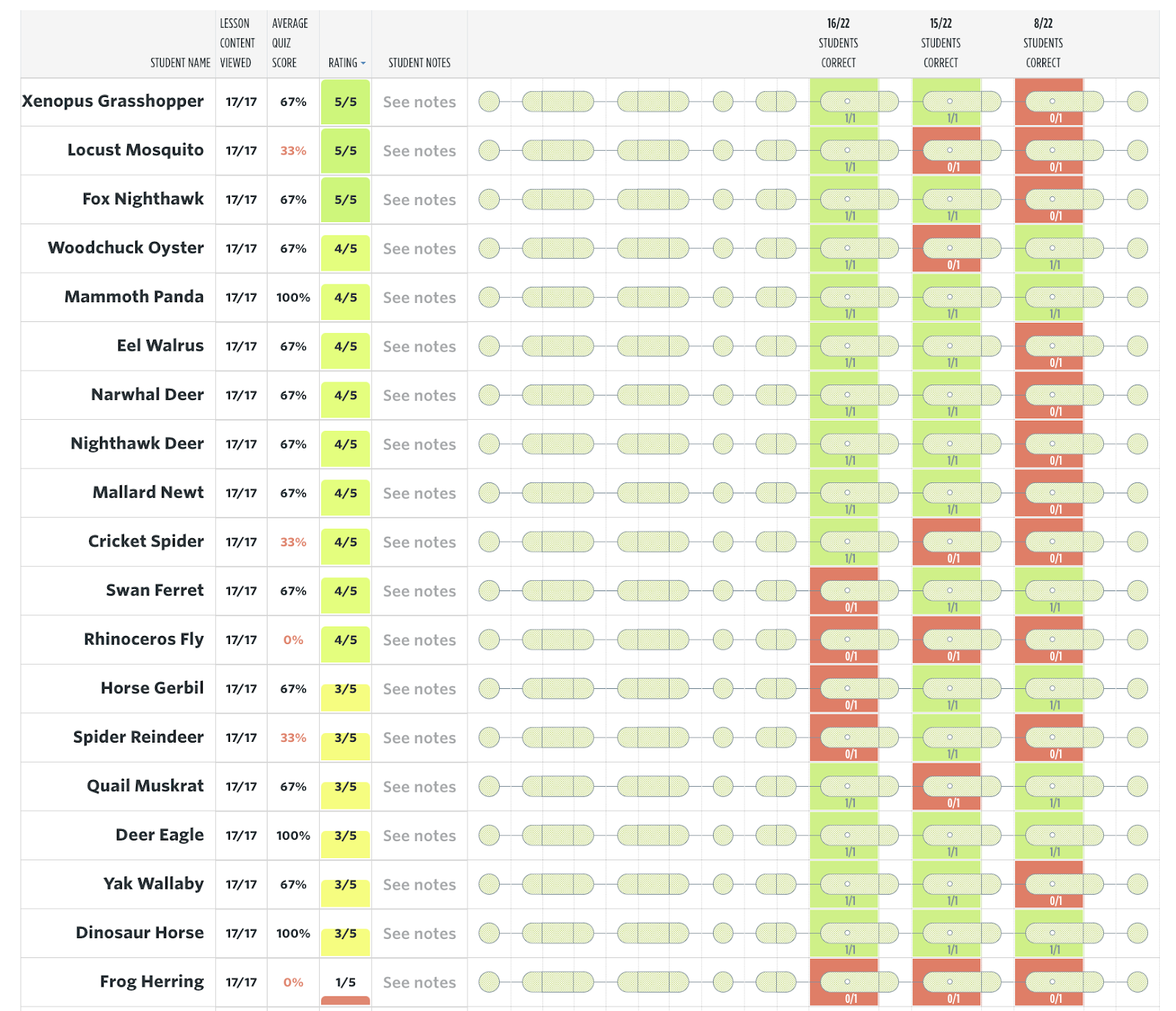Exam revision first aid kit
As the end of year exams get closer, it gets harder to keep students motivated to learn and revise.
This exam first aid kit, packed with 10 tried and tested exam revision ideas to use with your Year 12 classes, is designed to revamp your revision, save you time and prevent revision classes from going stale. And if you’ve got a great exam revision idea, be sure to share on social media and tag @EdroloHQ so we can help spread the great ideas.
1. Cognitive verb bookmarks
Never have I ever had a student tell me they didn’t know what the question was asking. Lies! In fact this is so common, and is often due to the fact that students struggle with the nuance in understanding cognitive verbs and therefore what a question is asking of them.
Print and handout this full exam term glossary (VCE, HSC, QCE) for your students to keep handy as they revise or complete practice questions. You can also download a printable exam term bookmark (VCE, HSC, QCE) with 10 useful verbs so students will always have them handy. Or get students to make their own bookmarks as a fun revision activity, or play a few quick rounds of exam verb bingo!
2. Don’t say that!
This makes a great warm-up or brain break and ensures students truly understand the meaning of key vocabulary.
- Give one student a key term and a list of associated words that they cannot use to describe it.
- This student gives the others clues as to what the term is, without using the forbidden words.
- The student who correctly identifies the key term takes the next turn, with a new word (and forbidden list).
Hack: Assign a key term to students and get them to brainstorm the forbidden words for the activity!
3. Nutshell sentences
This is a great activity if you find your students are prone to waffling on in their question responses. It’s also adaptable and can be used for short questions, or longer writing tasks. This type of practice also helps students better understand what the essential information is when answering a question and evaluating the marking criteria.
- Have students answer a question as normal.
- Challenge students to reword their answer in 20 words or less. Their aim is to provide as much detail and accuracy as possible.
- Compare responses and discuss what was considered the most important elements to keep.

4. A pomodoro for Edrolo
This is a strategy widely used for time management, but can also be utilised in class to help guide students’ independent study whilst you conference with students.
I think this is a good technique to try with your class as it teaches students time management and will help them better understand what they can achieve in a short time frame. In their application time, you can conference with students who need intervention and/or extension as needed.
- It’s simple: set a 25 minute timer for students to work to. Students can work on a range of tasks in this time frame including, completing Edrolo exam questions, writing some body paragraphs of an essay, reviewing Edrolo videos and content (with headphones of course), or reviewing their mistakes and having a second attempt at questions in the platform.
- After the 25 mins students get a short break, then start the clock again!
Find more on the Pomodoro Technique here
5. Traffic light revision
Use the student self-rating scores in the Edrolo platform to create revision groups where students work together to review a topic and overcome difficult concepts.
For example, group students who have rated themselves 1-3 together and get them to create a summary of the topic with essential information and tips to remember. You can even run a gallery walk at the end where each group provides peer feedback.

Teacher data on the Edrolo platform showing student lesson ratings. This data is ordered to show how you can easily identify student groups
6. Mini-workshops
Finding that different students require a different revision focus? Use data to help inform mini-workshops. Group students by lower self-ratings and lower quiz scores by topic (using data on the Edrolo platform), and then plan dedicated mini-workshops for each group. If your students need lots of support this may involve some explicit teaching, but you could also get students to engage in peer teaching.
7. TAG, you’re it!
Get your students to level-up their responses with peer feedback. After your students have attempted some exam-style questions (including those on the Edrolo platform), pair them off and get them to use the TAG protocol.
T- tell a positive
A- ask a question
G- give a suggestion
They can use the Edrolo marking guides to help inform their feedback and then improve their responses.
8. Exam scavenger hunt
This is a fun activity designed to build student capacity at navigating the actual printed exam paper. It’s really simple: print off a few past exams and write a list of questions about the paper itself - students then do a scavenger hunt with the paper to find the answers. We’ve got some example questions below, also saved here as an editable worksheet. Don’t forget to set a timer too (say 10 or 15 mins) to keep the pressure on!
Or even better - get students to write the questions themselves and ask their peers as group work.
Post COVID, students live in a digital ecosystem but exam papers are still physical! The papers are large, often contain multiple components, source booklets, stimuli etc, and require extensive interaction. This is often hard for digital natives! This activity helps students navigate the aspects and iterations of the paper, and working with printed papers associates movement to memory!
Here’s some ideas for scavenger hunt questions:
- How many pages are in the exam booklet?
- What question has the highest mark allocation? What page is it on?
- How many questions are there in the first four pages?
- What is the combined mark allocation of the questions in Section X?
- What types of questions are in section X? Multiple choice? Short answer?
- How much writing time do I have? What page do I find this info on?
- What questions do I answer in the paper? What question do I answer in a separate booklet?
- How many parts does Question X have?
- Question X is on what page?
- List all the questions that are OPTIONAL. What page are they on?
- Tally the type and number of cognitive/directive verbs - which ones are most common? Least common? Have the most mark allocation etc?
9. Jeopardy!
This is a backward design activity in which students are given a pre-written exemplar (a WAGOLL), and are then asked to work out what the question is - including the directive/cognitive verb, the syllabus dot point and any qualifying terms. Giving students the marking guidelines/rubric is an option too.
In asking students to read a response and work out what the question is, they must interact with, and therefore build their understanding of the nuances and components of a response and syllabus dot point e.g. language features, grammatical clues, nature of content, structure, length of the response etc. This understanding can then be applied to their own responses.
Hack: Edrolo offer 100s of exemplar responses for each subject called Progress Checks - you can easily use these for this strategy
Some questions you could ask students after giving them an exemplar:
- How long is the response? What type of verb would you associate with the length of the response?
- Are there any language features or grammatical clues that give away the verb e.g. judgement words, or common words?
- What syllabus dot point would you associate with the content?
- Is the response using common words or phrases that might indicate something about the question?
10. 2-step exam literacy booster
We know as teachers that content knowledge is crucial to exam success. However, students also need to be able to interpret and understand the exam questions, and be able to allocate their time to answer different parts of the question to maximise their marks. Exam questions can be dense, loaded with words and hard to interpret (often by design!). Investing some time in looking at exam questions together, using the ready-to-go worksheets and activities here, might pay dividends when it comes to exam time. See this previous article on building students’ exam literacy for VCE, HSC and QCE from my colleague and former deputy principal Joel, with practical ideas and printable handouts to help students with their exam literacy. Plus my colleague Bez and I also shared this previous article with more ideas for teacher-led and student-led exam prep and revision.

